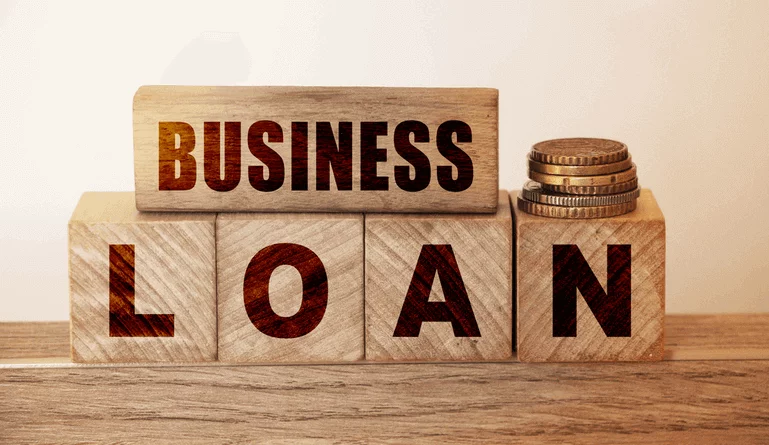When you’re looking to start or grow a business, taking out a loan is often a necessary step. However, many entrepreneurs wonder whether a business loan will affect their personal credit. In the U.S., the relationship between business loans and personal credit can be complex, and the answer depends on various factors. Let’s break it down so you can make an informed decision.
1. Types of Business Loans and Personal Credit Impact
Not all business loans are created equal, and whether or not they impact your personal credit largely depends on the type of loan you’re seeking.
- Sole Proprietorship and Partnerships: If you operate as a sole proprietorship or a partnership, the lines between personal and business finances are often blurred. In these cases, lenders will likely look at your personal credit because the business isn’t a separate legal entity. If you personally guarantee the loan, any missed payments or defaults could affect your credit score.
- Corporations (C-Corp, S-Corp): If your business is structured as a corporation, your business is considered a separate legal entity, which can protect your personal credit. In this case, the loan should primarily affect the business’s credit, not your personal credit. However, personal guarantees are still common for small business loans, which means you could be held personally responsible if the business defaults.
- Limited Liability Companies (LLC): Similar to corporations, LLCs provide a level of separation between personal and business credit. But again, many lenders require personal guarantees, which could tie your personal credit to the business’s loan.
2. Personal Guarantees and Their Impact on Credit
A personal guarantee is a commitment from the business owner to personally repay the loan if the business cannot. This is especially common for small businesses or startups that lack a robust business credit history. When you sign a personal guarantee:
- Personal liability: The lender can come after your personal assets (like your home or savings) if the business fails to repay the loan.
- Credit report impact: If the business defaults on the loan, or if you fail to make timely payments, the missed payments could show up on your personal credit report. This can lower your credit score and affect your ability to get personal loans, credit cards, or mortgages in the future.
3. Will a Business Loan Appear on My Personal Credit Report?
Generally speaking, business loans that require a personal guarantee can show up on your personal credit report. If you fail to make payments, the lender may report the delinquency to the credit bureaus, which could negatively affect your personal credit score.
However, if your business is a separate legal entity (like an LLC or corporation) and you don’t sign a personal guarantee, the loan should not impact your personal credit. In this case, the loan should only be reported on your business credit report, assuming your business has one.
4. Business Credit and Its Role in Loan Applications
One way to avoid mixing your personal credit with business loans is by building strong business credit. Business credit operates similarly to personal credit, but it’s tied to your business’s Employer Identification Number (EIN), not your Social Security Number (SSN).
Having a good business credit score can:
- Help you qualify for loans and lines of credit without a personal guarantee.
- Allow you to separate your business and personal finances.
- Potentially lead to lower interest rates and better loan terms.
Building business credit takes time, but it’s well worth the effort to ensure that your personal credit remains unaffected by business borrowing.
5. How Can I Protect My Personal Credit When Taking Out a Business Loan?
If you’re worried about how a business loan might affect your personal credit, here are some steps you can take to minimize the impact:
- Consider a business-only loan: Look for loans that don’t require a personal guarantee. Some lenders specialize in business loans for companies with established business credit.
- Separate your finances: Open a business bank account and apply for a business credit card. Keep personal and business expenses completely separate to avoid mixing your credit.
- Build business credit: Take steps to establish a solid business credit history. This may include applying for a business credit card, paying vendors and suppliers on time, and maintaining a good payment history.
- Read the loan terms carefully: Always read the loan agreement to determine whether you’re personally guaranteeing the loan. If so, you’ll be personally responsible for repayment if your business can’t pay.
- Repay loans on time: Whether it’s a business or personal loan, always strive to make payments on time. This is one of the most important factors that will affect your credit score—both personally and for your business.
6. Alternative Financing Options
If you’re concerned about affecting your personal credit, you might want to explore alternative financing options that don’t involve personal guarantees or loans tied to your personal credit score. Some options include:
- Business lines of credit: A line of credit for your business can provide flexibility without risking your personal assets if managed properly.
- Crowdfunding: Depending on your business model, crowdfunding might be an option to raise capital without taking on debt.
- Grants: Government grants or nonprofit funding may be available, especially if you’re a minority-owned or woman-owned business.
7. Conclusion: Will a Business Loan Affect Your Personal Credit?
The short answer is: It depends. If you operate a sole proprietorship, partnership, or sign a personal guarantee for a business loan, it can affect your personal credit. On the other hand, if your business is a separate legal entity and the loan is not personally guaranteed, it should not affect your personal credit score.
To protect your personal credit, consider building business credit, carefully choosing your financing options, and making timely loan payments. Separating your personal and business finances from the outset is a smart strategy to avoid complications and safeguard your credit in the long term.
If you’re in the process of applying for a business loan, take the time to evaluate the loan terms and how they might impact your personal finances. The goal is to ensure your business has the funds it needs to succeed while protecting your personal credit from unnecessary risk.
Frequently Asked Questions (FAQ)
1. What is an FAQ?
An FAQ (Frequently Asked Questions) is a list of common questions and answers that help people understand a particular topic or process. It’s designed to provide quick and easy answers to recurring questions.
2. Why are FAQs important?
FAQs serve to:
- Save time by answering common questions upfront.
- Provide clarity on complex or misunderstood topics.
- Enhance user experience by giving immediate help and reducing the need for customer support.
- Improve website usability by offering self-service options.
3. Who creates FAQs?
FAQs are typically created by:
- Businesses or organizations to address customer queries.
- Websites or blogs to provide helpful information to visitors.
- Products or services to guide users in troubleshooting or usage.
4. How do I create an effective FAQ section?
An effective FAQ should:
- Be clear and concise: Avoid jargon and overly complicated explanations.
- Address common questions: Think about what your customers or audience often asks.
- Be organized: Group related questions together to make it easy to navigate.
- Be updated regularly: As new questions arise, update the FAQ section to stay relevant.
5. Can I find FAQs for specific industries?
Yes, many industries and sectors have specific FAQs. Some common categories include:
- Retail: Payment methods, delivery times, return policies.
- Technology: Troubleshooting, installation guides, compatibility.
- Health & Wellness: Product usage, health benefits, safety concerns.
- Legal: Terms of service, privacy policies, user rights.
6. How often should I update my FAQ section?
It’s a good practice to review and update your FAQ section:
- Quarterly or annually to ensure accuracy.
- After major changes (e.g., new product launches, changes in policy).
- When new recurring questions arise.
7. How can I make my FAQ more interactive?
To make your FAQ section more engaging:
- Use multimedia: Add videos, images, or infographics to clarify answers.
- Include search functionality: Make it easier for users to find answers by adding a search bar.
- Provide links to more detailed resources or guides.
- Offer a live chat option for real-time answers to unique questions.
8. Should I include a contact option in my FAQ?
Yes! It’s a good idea to provide a way for users to contact you if they can’t find what they’re looking for in the FAQ. Include a contact form, email, or phone number for further assistance.
9. Can I automate the FAQ process?
Yes! Many websites and businesses use chatbots or AI-driven solutions to automate answering common questions. This can help users get immediate responses, even if you’re not available for direct interaction.
10. What are the benefits of an FAQ section?
The main benefits include:
- Improved customer service by reducing wait times and providing quick answers.
- Reduced support costs since fewer people will need to reach out for help.
- Better user experience by helping visitors find what they need quickly.
Read More:
- How to Reduce Home Loan Rate of Interest in California: A Guide to Saving
- Loan Contract Disclosures: What Are Your Rights as a Credit Applicant?
- How to Become a Loan Officer with No Experience in California (2025)
- How to Get a Commercial Loan for Rental Property in New Jersey (2025 New Guide)
- Trump says JPMorgan Chase, Bank of America rejected him as a customer










